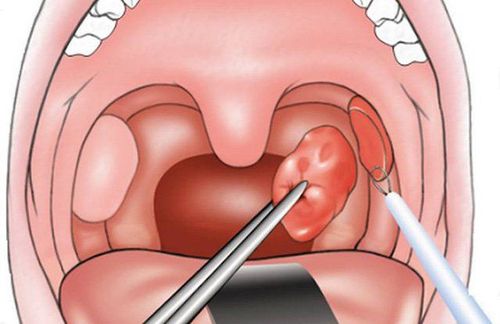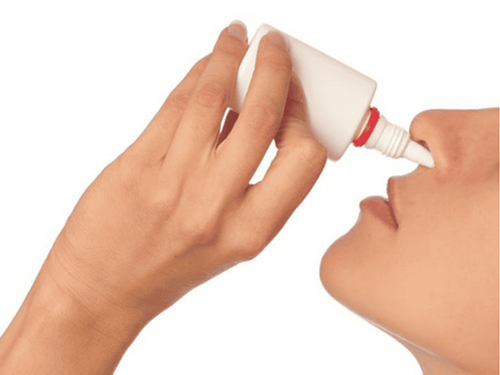This is an automatically translated article.
Snoring cannot be understood simply as making noise unconsciously.
This is also a sign of health about respiratory disorders and related diseases and complications. Why do you snore? Snoring occurs when air cannot flow smoothly through the airways at the back of the nose and mouth. In the pharynx, soft tissues (tongue, tonsils, palate, uvula) are supported by motor muscles. During deep sleep, these muscles relax, narrowing the airways, causing snoring.
Snoring: The characteristic symptom of obstructive sleep apnea syndrome (OSAS) Obese people have a thick layer of fat in the throat that changes the structure of the throat and obstructs air circulation or snores when sleep. Smoking, drinking a lot of alcohol or sleeping pills can also cause the lining of the throat to swell, causing congestion and narrowing of the airways. People with chronic sinusitis and nasal congestion often have to breathe through their mouth, which is one of the causes of snoring. Sleeping on your back can cause your tongue and roof of your mouth to drop down into the back of your throat, blocking your airways. Or signs such as tonsillitis, allergies, stuffy nose, throat and jaw structures... Snoring can lead to sleep apnea, a sudden decrease in blood oxygen levels leading to increased blood pressure and heart palpitations. rapidly creating a burden on the heart, dangerous to health. Loud snoring also creates stress that affects the nerves and spirit, causing many people to fear and feel insecure. In addition, snoring while sleeping can disrupt sleep, making you not fully rest or stop breathing, thereby leading to many diseases such as heart disease, high blood pressure, stroke...
Snoring affects affects the sleep performance of snorers, in addition, it causes a lot of trouble for the spouse and marital happiness. According to statistics, about 25% of people regularly "live" with snoring. Men are more susceptible than women, and the rate doubles for smokers. Effects of snoring on human health: - Weakened immune system - Increased sleepiness during the day, signs of not being alert - Decreased productivity and work efficiency - Mental clarity Habits The following habits/conditions easily lead to snoring while sleeping: - As a result of muscle weakness, the body - Drinking alcohol, because alcohol plays a part in relaxing the muscles of the throat - Smoking, tobacco stimulates the muscles of the throat. soft tissue in the nose and throat - People who are obese due to the narrow neck size due to fat accumulation - Diseases caused by colds, sinusitis, allergies, inflammation or fever in the nose and throat....
One Some Snoring Treatments Lifestyle Changes Actively making positive lifestyle changes can significantly reduce or even eliminate snoring. Quitting smoking, losing weight, not drinking too much alcohol/stimulants and exercising regularly will ensure better sleep. Notes on sleeping position Changing sleeping positions on your side is more comfortable than lying in an upright position. A comfortable throat will help reduce snoring while sleeping. Pillows that support between the head and neck will create a more comfortable feeling for sleep. To sleep better, you should pay attention to avoid using alcohol and stimulants before going to bed. Take medicine if necessary If your snoring is related to nasal congestion, allergies, infections, sinusitis...., you should consult your doctor to use medicines such as medicines. Antihistamines, decongestants, sprays... Uvulopalatoplasty surgery is a surgical treatment to remove excess cells from the roof of the mouth and tongue using local anesthesia. This method is applied when you determine the underlying cause of snoring is jaw deformity, tonsils are too large, factors in the nasopharynx... Finally, you need to follow your doctor's instructions/advice. doctor to completely overcome your snoring condition. Minh Tan Fee (According to Shoppinglifestyle )













